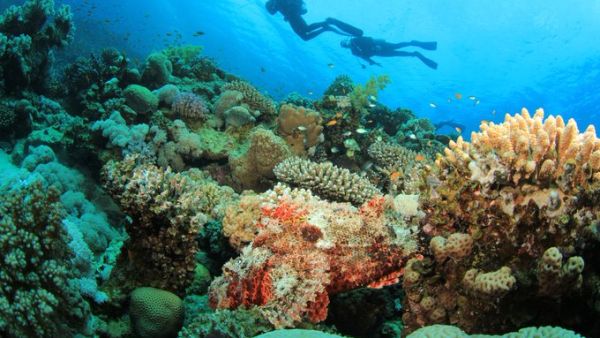A joint operation between the Aqaba Special Economic Zone Authority (ASEZA) and OceanX, an international organisation specialised in the scientific exploration of oceans and marine life, brought together 16 researchers from six Jordanian universities to participate in global scientific expeditions in the Gulf of Aqaba.
The first expedition began on Thursday morning with the goal of promoting Jordanian tourism and protecting the marine environment, the Jordan News Agency, Petra, reported.
Wildlife #aqaba
— Aqaba Sky Travel & Tourism (@AqabaSky) July 2, 2022
Aqaba's gulf is rich with marine life, around 500 species of fish inhabit the gulf, many of which are residents, like lion fish and octopus, while others are migratory, appearing mostly during the summer, such as the world's fastest fish, the sailfish, pic.twitter.com/r6LFVkfah4
For the first time in Jordan, approximately 20 research projects will be carried out using cutting-edge technologies such as hydrographic surveying to study coral species, seagrass, sea creatures and genetics, as well as documenting and publishing the findings.
Researchers participating in the expedition said augmented virtual reality and artificial intelligence technologies will be leveraged for the documentation process, which will use high-tech photography as the OceanX ship accesses an unreached depth of 800 metres.
The footage will be sent to a laboratory to be shared with thousands of students.
Picture this; you’re surrounded by the deep blue sea, looking at the marine life you had only ever seen on television; and for a moment, you truly feel one with nature.
— The Scuba News (@TheScubaNews) June 13, 2022
That’s the kind of experience you’re promised when you go scuba diving in Aqaba!
https://t.co/WPIWEXHldV pic.twitter.com/gIZ9p6UiAn
Ali Sawalmih, director of the Marine Science Station (MSS), said this cooperation is the fruit of royal interest to highlight Aqaba’s gulf and establish a marine reserve, noting that this expedition is an opportunity for Jordanian researchers to publish their work locally and globally.
The most important part of the research is the genetic features of corals responsible for climate change resistance, as well as the effect of climate change on marine species, Sawalmih added.








